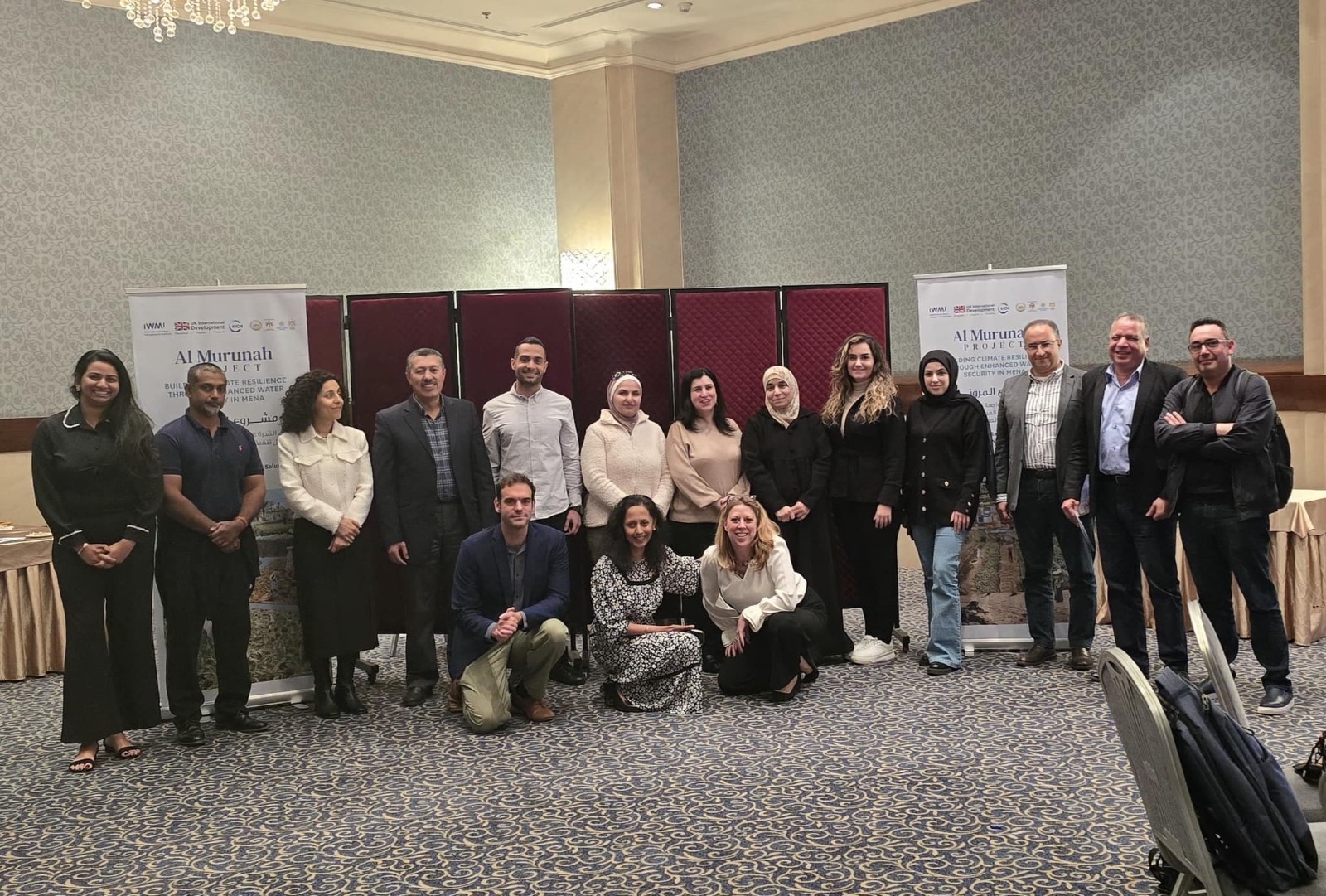
The Al Murunah Regional Workshop, held from March 4th to 6th at the Geneva Hotel in Amman, Jordan, convened the project team, partners, and stakeholders involved in advancing Resilient Nature Based Water Solutions (RNBWS). Organized by the International Water Management Institute (IWMI), in collaboration with the International Union for Conservation of Nature (IUCN) and country implementation partners including the Society for the Protection of Nature in Lebanon (SPNL), Centre for Environment and Development for the Arab Region and Europe (CEDARE) in Egypt, and the Palestinian Hydrology Group (PHG) in the Occupied Palestine Territories (OPT), the workshop served as a pivotal moment in advancing collaborative efforts toward sustainable water management practices.
The objectives of the workshop were multifaceted and included updating partners and stakeholders on project progress, fostering a common understanding of RNBWS characteristics, soliciting key themes for knowledge exchange, planning for the next fiscal year’s (FY3) activities, beginning consideration of potential gender social norms transformation pilots, and articulating objectives for longer-term peer learning and project outputs from the pilots. Participants included representatives from governmental bodies, non-governmental organizations, private sector entities, international agencies, and project teams from the involved countries.
Throughout the three-day event, presentations and sessions generated engaging conversation. Notably, participants emphasized the importance of hybrid Nature-Based Solutions (NBS) tailored to community needs, documentation of processes and learning to facilitate replication, institutionalization to support systemic change, proactive sustainability and upscaling strategies, and holistic approaches to consider wider characteristics beyond natural resource management and livelihood considerations, for example differences in labour intensity and ecosystem dynamics as they relate to NBS and hybrid NBS.
From national updates on pilot projects to in-depth talks on market-led upscaling, institutional integration, and gender transformation, the workshop agenda reflected the diverse facets of RNBWS implementation. Moreover, the workshop provided a valuable opportunity for stakeholders to network, forge partnerships, and collectively commit to driving positive change in water management practices.
A key highlight of the workshop was the convergence of project teams and national stakeholders, which fostered a collaborative environment. The shared enthusiasm for pilot implementation, peer learning, and gender transformation components underscored a collective vision for sustainable water management practices. Importantly, the workshop facilitated the development of a shared understanding of RNBWS among participants, providing a solid foundation for future endeavors including a shared understanding of and commitment to the FY3 workplan.
For more information, read the workshop blog here Modern tools and ancient smarts




